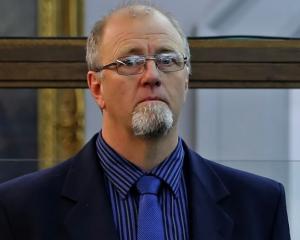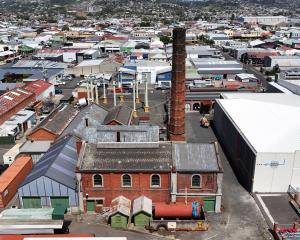The future of green transport is rolling out the door of a normal-looking factory in Rolleston. Reporter Daniel Alvey checked out what was going on inside.
From humble beginnings, Global Bus Ventures is now at the cutting edge of the transport sector, developing everything from buses, trucks, and chase boats for the America’s Cup.
The company was founded in 1985 in Ashburton by John Turton and started as Designline.
In the 1990s it began developing early electric buses which required onboard generators to keep them running for a full day.
The company’s latest generation of electric buses have about 500km of range.
Due to growth, the company moved to Rolleston’s Izone in 2008, and it was then that Turton decided to retire. The company is now entirely American-owned.
Sales manager Tom McLeish said as the business grew in size, it needed more people.
“For the amount of guys you need, Ashburton was a little bit small.”
Global Bus now employs 126 people at its 8000sqm Rolleston factory and produces about 130 buses a year.

“It’s going to be all electric soon . . . You can’t put an urban bus on the road now without it being electric,” McLeish said.
“For the long-range vehicles, hydrogen will be the go in the end. Electric vehicles are okay for shorter trips and around town stuff, but coaches and long city hauls more than likely will be hydrogen.”
The company has five electric and one hydrogen bus on roads around the country and all can be tracked live from the company’s office where they can monitor battery level, charge status, and any faults.
The production of a bus starts with a standard chassis which Global Bus imports and modifies to suit its design. The company then builds the body on top.
Each bus takes about 12 weeks to complete, depending on size and complexity.

An increasing challenge facing the company is organisations such as Environment Canterbury choosing to purchase cheaper, Chinese-made buses which McLeish said they cannot compete with.
“We can’t compete with a lot of the imported vehicles. I mean, they’re building 100 vehicles in a day. When you’ve got that sort of scale it’s hard to compete.”
Global Bus ships some of its vehicles to Australia and is in the process of building 66 buses to send across the Tasman. The buses will end up in several Australian states, with the exception of New South Wales.

“We could ship over a shell (to Australia) without the front and back and without the seats and they could fit it out. That would mean we could compete with the imports,” he said.
McLeish was supportive of something similar being introduced in New Zealand to protect local manufacturers like Global Bus.
“To keep the industry running in New Zealand, that would be brilliant.”

Companies are lining up for it, but McLeish said it will depend on hydrogen filling station infrastructure being built.
“It’s really about the infrastructure. We are lining-up conversions for trucks and there are more and more enquiries about that.
Currently, there are three hydrogen filling stations in the North Island and none in the South, but there are plans to develop more.
Once on the road, Global Bus’ hydrogen-powered truck is expected to have a driving range, between refills, of about 400km when fully-loaded.
The Global Bus truck is the only one in Australasia using a Toyota Fuel Cell.
Said heavy vehicle engineer Kurtis Emtage-McIntyre: “We’re the only people in Australia that Toyota have given their fuel cell to install in vehicles.
“The fuel cells range between 35 and 65 per cent efficient compared to diesel which is 5 to 30 per cent efficient.”

“We actually made a cup of tea from the water of the bus . . . but the water was too pure to drink.”
Using the same fuel cell, Global Bus helped develop a chase boat for Team New Zealand to use in the America’s Cup in Barcelona.
The boat is capable of cruising at around 35 knots, with a top speed of 50 knots.
The chase boat will be in action tomorrow for the start of the cup.
- Do you know of a company doing innovative work in Selwyn? Send their story to daniel.alvey@starmedia.kiwi












